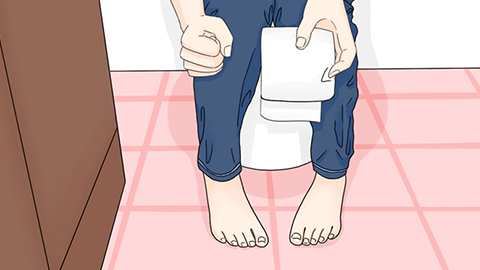What should I do if I feel the urge to defecate whenever I'm stressed?
Feeling the urge to defecate when anxious may be caused by intestinal stress response, psychological stress transmission, irritable bowel syndrome (IBS), functional dyspepsia, or anxiety-related gastrointestinal dysfunction. Symptoms can be improved through emotional regulation, lifestyle adjustments, and medication. If symptoms occur frequently or are accompanied by abdominal pain or rectal bleeding, prompt medical attention is necessary.
1. Intestinal Stress Response: When anxious, heightened nerve activity affects intestinal motility, accelerating bowel movement and triggering the urge to defecate, typically without other significant discomfort. It is recommended to practice deep breathing or meditation to relieve tension, avoid extreme emotional fluctuations, and reduce intestinal stimulation.
2. Psychological Stress Transmission: Prolonged mental stress and anxiety can directly affect the gastrointestinal tract, increasing its sensitivity and leading to defecation urges after stressful events. Engaging in outdoor activities, communicating with others, and expressing feelings can help relieve stress and regulate psychological well-being.

3. Irritable Bowel Syndrome (IBS): Characterized by abnormal intestinal motility that is highly influenced by emotions, IBS can trigger abdominal pain, bloating, increased bowel movements, or diarrhea during periods of stress. Patients may take medications such as pinaverium bromide tablets, otilonium bromide tablets, or Bifidobacterium triple viable capsules under medical supervision to alleviate symptoms.
4. Functional Dyspepsia: This condition involves impaired gastrointestinal motility and high emotional sensitivity, where stress worsens digestive disturbances, causing urges to defecate and bloating. Under a doctor’s guidance, medications such as domperidone tablets, mosapride tablets, or lactulose oral solution may be used to relieve discomfort.
5. Anxiety-Related Gastrointestinal Dysfunction: Anxiety disrupts the nervous regulation of the gastrointestinal system, leading to frequent urges to defecate after stress, often accompanied by nausea and reduced appetite. Patients may use sertraline tablets, fluoxetine dispersible tablets, or Bacillus licheniformis live bacterial capsules as directed by a physician to improve symptoms.
Maintain a light and easily digestible diet, avoid spicy or cold foods, follow a regular sleep schedule without staying up late, engage in moderate exercises such as walking or yoga, and maintain a positive mood to minimize gastrointestinal fluctuations.




